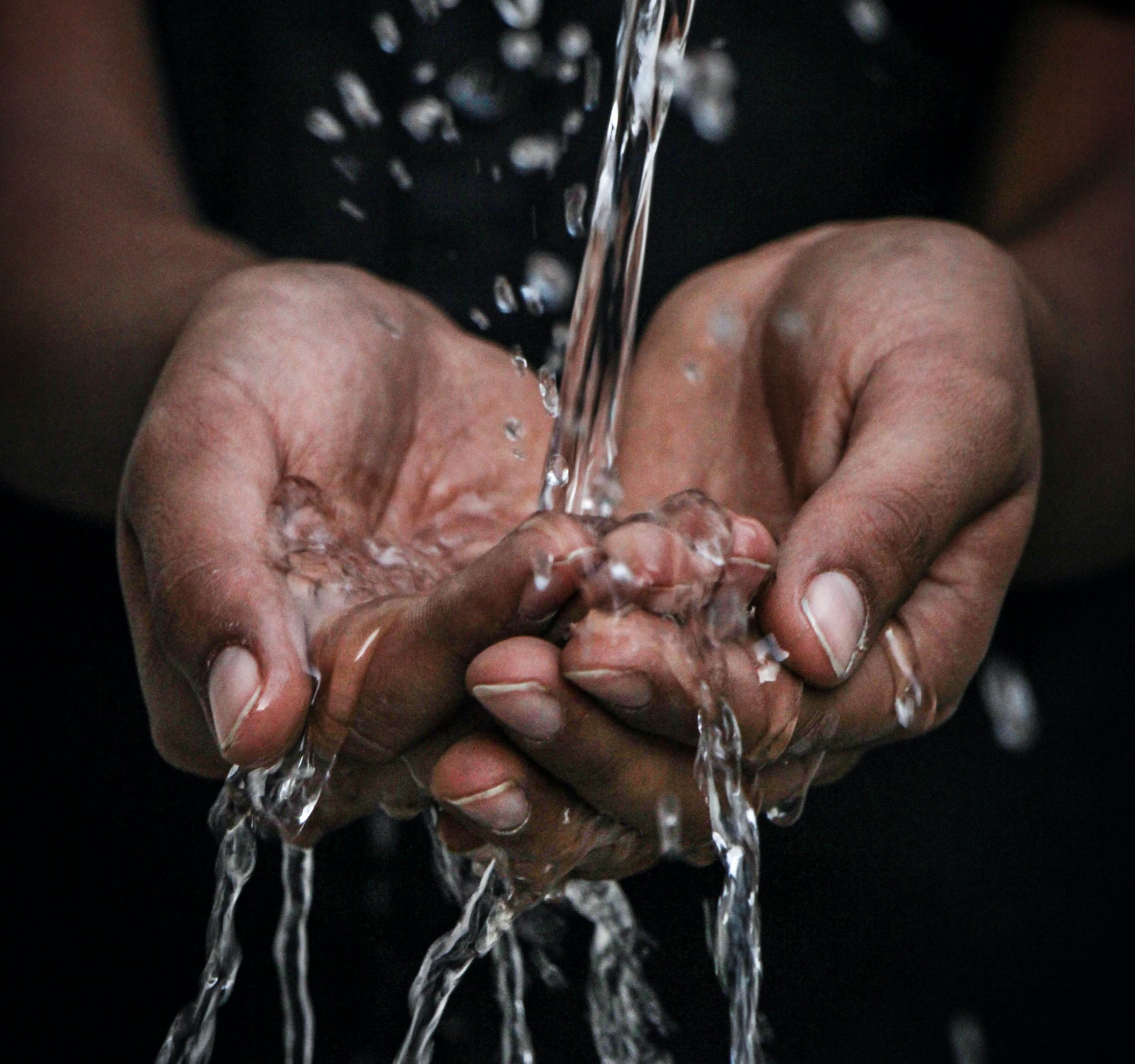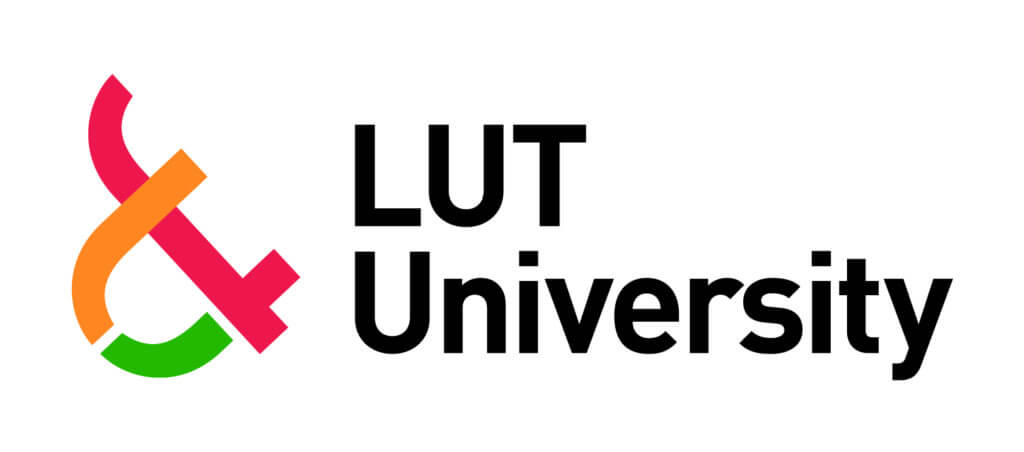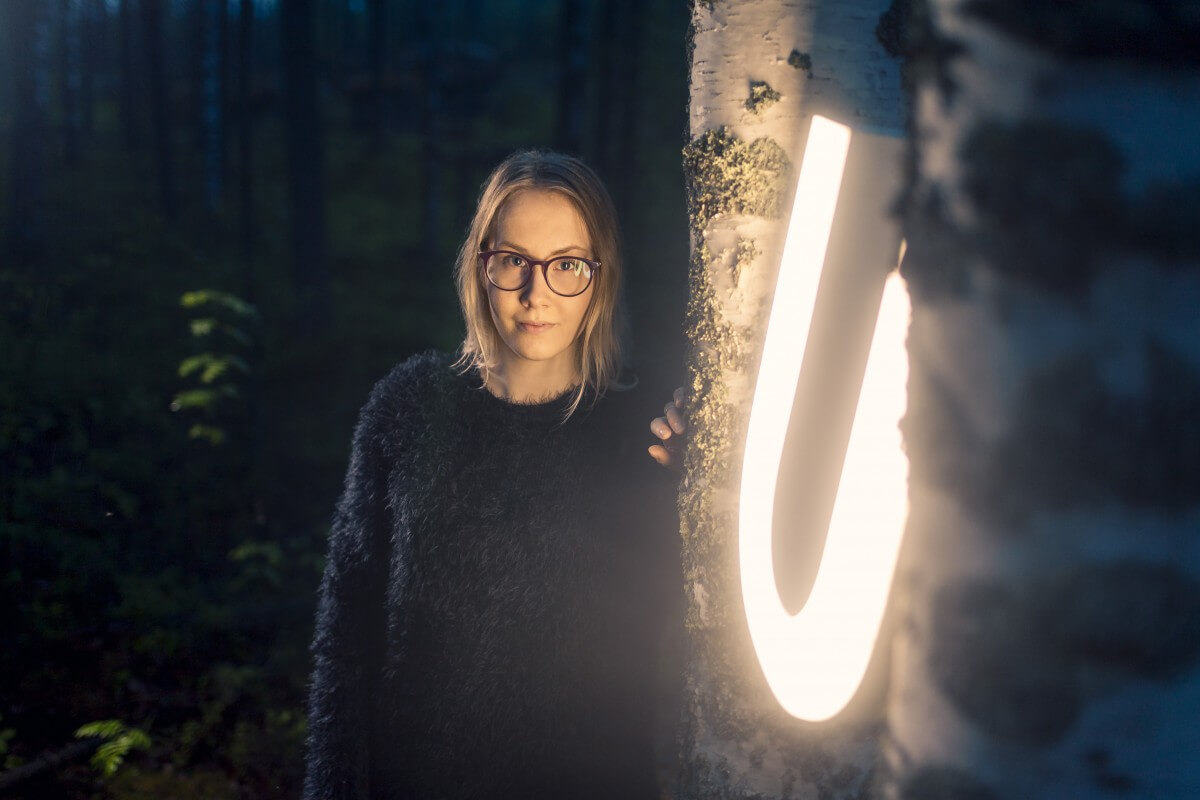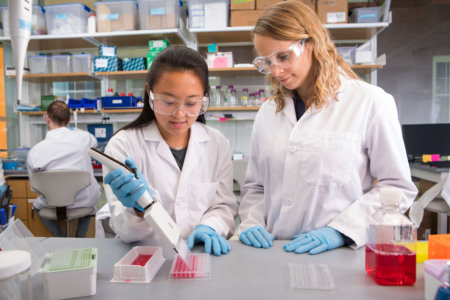It was by chance that Ekaterina Bandina saw Lappeenranta-Lahti University of Technology’s stand at an international education exhibition in Moscow. She was about to complete her bachelor’s thesis, which was related to water treatment, and LUT University’s Master’s Programme in Water Technology offered exactly what she was interested in.
The rest is history. Bandina is now a second-year student at LUT University, and happily learning about water treatment methods and technologies while adjusting well to life in Finland.
“Finland is an amazing country,” she says. Indeed, Finland’s stable economy, natural beauty and high ranking for education are why it has been ranked the world’s happiest country — making it an attractive option for international students.
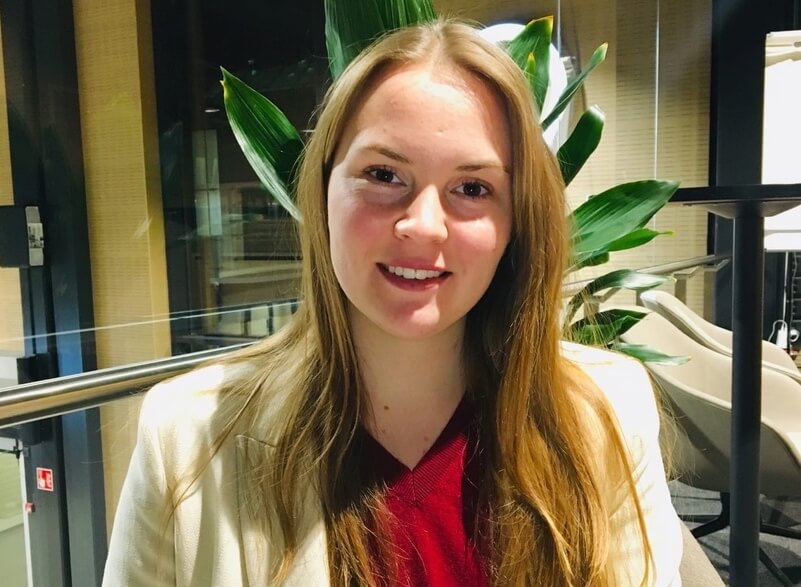
Photo courtesy of Ekaterina Bandina
LUT University was ranked among the top 201 to 300 out of 1,115 universities in the 2021 Times Higher Education (THE) Impact Rankings — and in the world’s top 10 in SDG 13 (“Take urgent action to combat climate change and its impacts”). It is also one of the world’s 20 most promising and rapidly developing challenger universities according to a report by the Firetail consulting firm.
These rankings reflect LUT University’s commitment to pursue science with a purpose. The university is focused on clean energy, water and air — life-giving resources that it seeks new solutions for with its expertise in technology and business.
Water is one of Earth’s most important natural resources, which is fast becoming a scarcity in many areas, due to increased water pollution. Two million tons of sewage, industrial, and agricultural wastewater go into water bodies daily. Hence, water treatment management not only can improve water quality but also raise the quality of life for humans. That is why the Master’s Programme in Water Technology at LUT University, primarily concentrates on existing and future water challenges.
Having world-class well-published professors with expertise in water treatment enhances the already excellent programme’s versatility. For instance, Professor Amit Bhatnagar focuses on sustainable solutions for wastewater treatment, Professor Susana Rodriguez Couto works on green technologies for removing hazardous recalcitrant pollutants from wastewater, Professor Mika Mänttäri employs membranes to deal with industrial emissions, and Professor Eveliina Repo works with her research group to recover valuable elements from secondary resources.
https://www.youtube.com/watch?v=PzdcRWSM5qM
The result? A strong competency in understanding how wastewater can be treated efficiently, sustainably, and economically — all of which help graduates have the necessary know-how of water treatment solutions for the future.
Interesting course content
“This place is filled with curiosity and freedom, and it is really helping me to learn something new every day,” shares Anastasiia Lopatina, who is studying Chemical Engineering and Water Treatment.
Ella Viitiö, a second-year Finnish student in this programme, concurs. “My favourite modules are Sustainable Water Use as well as Environmental and Industrial Analytics,” she says. “All in all, the modules have been well organised, but especially those modules have gotten me to look at things in a different perspective.”
Students on this multidisciplinary master’s programme can expect to understand the best available techniques and advanced water treatment technologies, and gain critical problem-solving skills on top of attending practical assignments with real companies and doing research projects. The programme is conducted in English for an affordable 13,500 euros.
More attractive reasons to study at LUT University
This distance-learning two-year programme also offers hybrid learning flexibility. International students can complete this master’s entirely online without having to apply for a residence permit; others based in Finland can attend the annual contact teaching days in both Lappeenranta and Mikkeli with all instruction, laboratory work and workshops offered in a virtual format for those who cannot physically travel there.
In fact, Viitiö cited the programme’s distance-learning format as one of the reasons for taking up this particular programme when she has a full-time job and lives on the other side of Finland.
Being the only one to offer a master’s programme dedicated to water technology in the whole of Finland means one thing: impressive research infrastructure. For both the Lappeenranta campus and Mikkeli unit, the total combined laboratory space measures 2,400 square metres or around 20 three-bedroom houses placed together; students can also use laboratory and bench scale equipment for algae technology, microscopes and reactor set-ups. LUT University’s library with three floors of working space and available access to many literature sources and databases is an additional boon for many students there.
Graduates of this programme will be well-placed to work in international and multicultural environments that can range from technology companies and processing industries to municipalities and research institutes. With this solid foundation, they can even opt to progress to doctoral programmes.
Bandina is already planning to continue her education as a PhD student; Viitiö aspires to be part of the change for a more sustainable future.
Follow LUT University on Facebook, Twitter, Instagram, LinkedIn and Youtube

